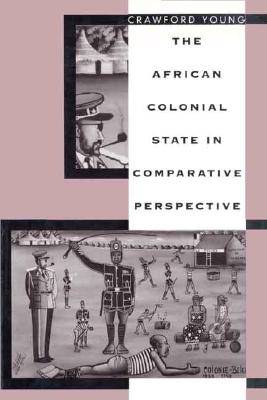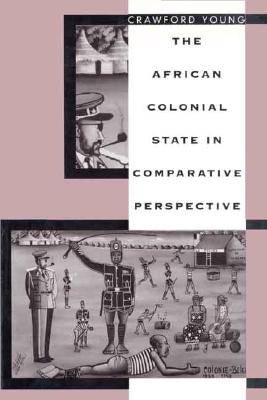
Nos liseuses Vivlio rencontrent actuellement des problèmes de synchronisation. Nous faisons tout notre possible pour résoudre ce problème le plus rapidement possible. Toutes nos excuses pour la gêne occasionnée !
- Retrait gratuit dans votre magasin Club
- 7.000.000 titres dans notre catalogue
- Payer en toute sécurité
- Toujours un magasin près de chez vous
Nos liseuses Vivlio rencontrent actuellement des problèmes de synchronisation. Nous faisons tout notre possible pour résoudre ce problème le plus rapidement possible. Toutes nos excuses pour la gêne occasionnée !
- Retrait gratuit dans votre magasin Club
- 7.000.0000 titres dans notre catalogue
- Payer en toute sécurité
- Toujours un magasin près de chez vous
33,95 €
+ 67 points
Description
In this comprehensive and original study, a distinguished specialist and scholar of African affairs argues that the current crisis in African development can be traced directly to European colonial rule, which left the continent with a "singularly difficult legacy" that is unique in modern history. Crawford Young proposes a new conception of the state, weighing the different characteristics of earlier European empires (including those of Holland, Portugal, England, and Venice) and distilling their common qualities. He then presents a concise and wide-ranging history of colonization in Africa, from the era of construction through consolidation and decolonization. Young argues that several qualities combined to make the European colonial experience in Africa distinctive. The high number of nations competing for power around the continent and the necessity to achieve effective occupation swiftly yet make the colonies self-financing drove colonial powers toward policies of "ruthless extractive action." The persistent, virulent racism that established a distance between rulers and subjects was especially central to African colonial history. Young concludes by turning his sights to other regions of the once-colonized world, comparing the fates of former African colonies to their counterparts elsewhere. In tracing both the overarching traits and variations in African colonial states, he makes a strong case that colonialism has played a critical role in shaping the fate of this troubled continent.
Spécifications
Parties prenantes
- Auteur(s) :
- Editeur:
Contenu
- Nombre de pages :
- 368
- Langue:
- Anglais
Caractéristiques
- EAN:
- 9780300068795
- Date de parution :
- 27-02-97
- Format:
- Livre broché
- Format numérique:
- Trade paperback (VS)
- Dimensions :
- 157 mm x 234 mm
- Poids :
- 498 g







